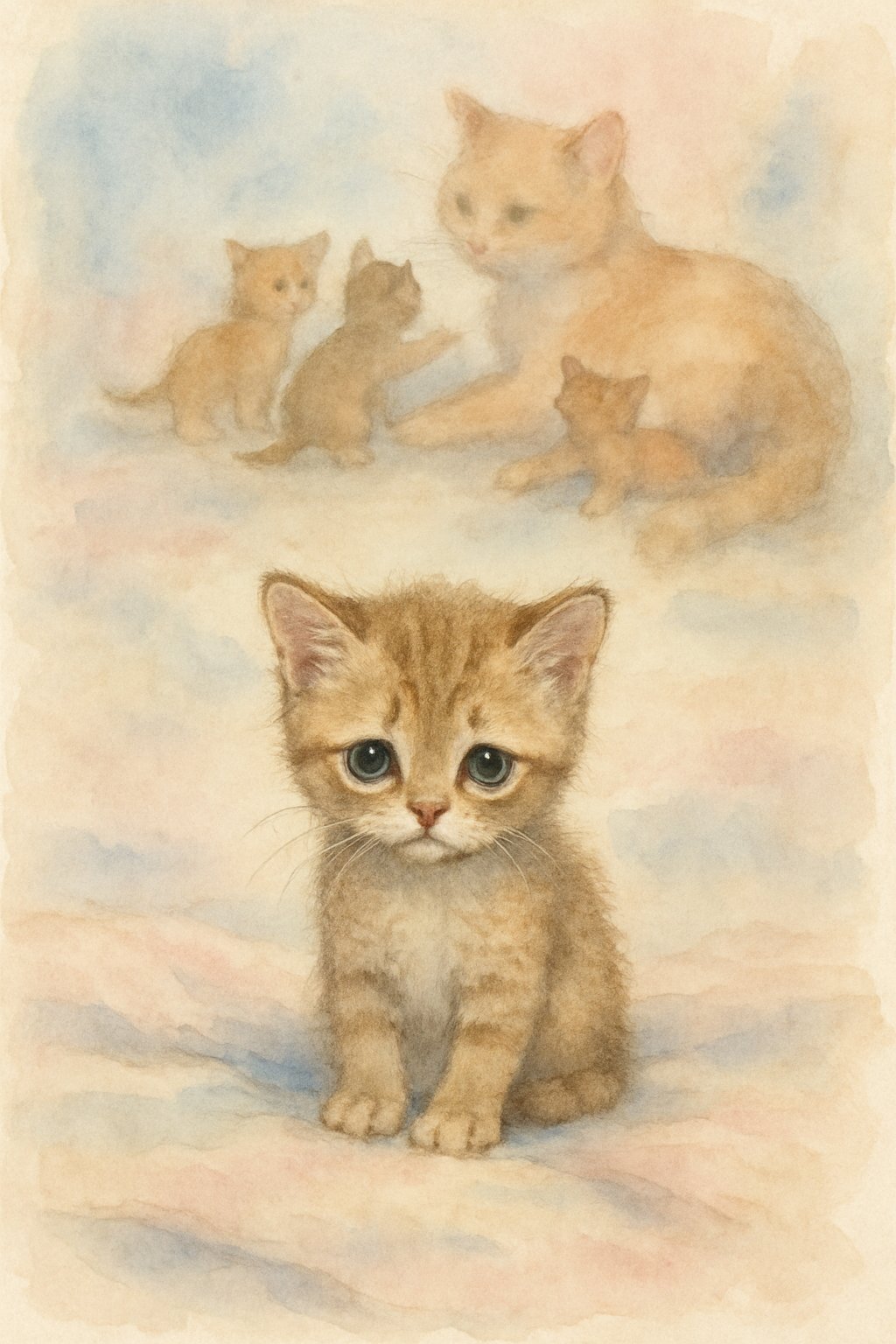
Kittens are adorable and full of energy, but people often miss just how much those first few weeks with their mom really matter. I keep seeing folks take kittens away too soon, maybe thinking they’re helping, but honestly, it usually backfires.

Let me share why it’s so important for kittens to stick with their mom and siblings early on. Knowing this stuff can help us actually give kittens the best shot at a happy, healthy life!
Weakened Immune Systems in Kittens

I get genuinely fascinated by how kittens grow, but the timing of leaving their mom? It matters more than most folks realize. When people separate kittens too early, those babies miss out on their mom’s colostrum—the “liquid gold” first milk loaded with antibodies.
If kittens don’t get enough of that, their immune systems just can’t keep up. I’ve seen them catch colds or tummy bugs way more often.
Kittens who stick with their mom for at least 8 weeks? They always seem sturdier, like little tanks. Nature really knew what it was doing when it made mom’s milk so crucial.
Increased Risk of Behavioral Problems

When kittens leave their moms too early, I notice all sorts of weird behaviors pop up. They get jumpy, skittish, or extra hissy in new places or around strangers.
Sometimes, they bite or scratch more—honestly, they just don’t know how to play nice because they missed learning those lessons from their family.
Some kittens get super clingy or cry way more than usual. I think they’re just looking for the comfort they lost.
Watching kittens learn social skills from their family is honestly kind of amazing. When they don’t get that, you can tell—they’re just not sure how to act around new animals or people.
Difficulty in Socializing Properly

Kittens who leave their moms too soon often seem awkward around other cats or people. They just don’t know how to join in or relax when meeting someone new.
They miss out on picking up body language cues and learning how to play without hurting. It’s honestly kind of sad to see a kitten that gets overwhelmed so easily.
Watching kittens wrestle and chase each other is the best way for them to build confidence. Without that, they struggle to fit in with other pets or even trust people.
It can be tough to bond with a kitten who didn’t get those early lessons. They need more patience and time to settle in.
Higher Chances of Anxiety and Stress

Kittens separated too early often seem way more anxious. I’ve watched them hide for hours or freak out over the smallest noises.
They struggle in new places, crying or pacing because they’re just not sure what’s safe. They don’t bounce back as quickly from stress.
Spending time with kittens who grew up with their mom is honestly a relief—they’re curious, relaxed, and way more open to new experiences.
It blows my mind how much those first weeks shape their whole personality. Kittens need that comfort and guidance from their mother to handle the world.
Poor Bite Inhibition Development

When kittens play with their siblings, they bite and wrestle, and they quickly learn what’s too rough. If a kitten leaves its litter too soon, it never really learns bite inhibition.
I’ve met kittens who just don’t know when to stop—sometimes they bite people or other pets way too hard.
Learning bite pressure takes practice, and kittens need their family for that. When they stay until at least 8-10 weeks, you can see the difference—they play gently and know their limits.
It’s honestly a huge relief when a kitten knows how to use its mouth softly. Bite inhibition is just one piece, but it makes a big difference in how they fit into a home.
Reduced Learning from Mother Cats

Watching kittens learn from their mom never gets old. In those early weeks, they copy everything—how to eat, groom, use the litter box, you name it.
If I take kittens away too soon, they just don’t get those crucial lessons. Mom teaches them how to play nicely and get along, and even when to stop biting.
Kittens who stick with their mom seem so much calmer. They pick up how to stay clean, when to hide, and how to interact with people. It’s honestly wild how much they absorb just by watching her.
Increased Vulnerability to Illness

When people take kittens away too soon, those little bodies just aren’t ready to fight off germs. Mom’s milk has nutrients and antibodies that help keep kittens healthy while their own immune systems are catching up.
Without enough time nursing, kittens get sick more easily—especially with stomach bugs and breathing issues.
Kittens who stay with their mom for at least 8 weeks usually come out way stronger. You can just see it in how they bounce back from little sniffles.
Understanding Kitten Development

Watching tiny kittens grow is endlessly fascinating. Those first weeks are full of changes, most of which happen only with their mom’s help.
Every stage shapes how healthy and social they’ll be later.
Key Milestones in Early Weeks
Week one: kittens arrive blind and deaf. They can’t even stay warm on their own and rely on mom for everything.
By the second week, their eyes start to open, but they still see pretty poorly.
Third week, their ears perk up and they start hearing. You’ll see them wobbling around, trying those first steps.
By weeks four and five, they’re exploring, playing, and learning the basics of grooming and social life.
Here’s a quick peek at those milestones:
| Week | Major Developments |
|---|---|
| 1 | Blind, deaf, helpless |
| 2 | Eyes open, limited vision |
| 3 | Hearing starts, wobbly walk |
| 4-5 | Play, groom, social skills |
Why Maternal Care Matters
A mother cat does way more than just feed her kittens—she teaches them how to behave, groom, and even use the litter box.
Her presence is what calms them when they’re scared.
All the licking and nuzzling you see? That’s not just cute—it helps build their immune systems and makes them feel safe.
Kittens who miss out on mom’s milk and lessons just don’t get the same start.
Those early days set the tone for how kittens will handle people and other animals as adults. Every cuddle and gentle paw swat is part of growing up right.
Long-Term Impacts of Early Separation

When kittens get separated from their moms too early, they can struggle for life. They may not get along with other animals or people, and I’ve seen them develop behavior problems that last well into adulthood.
Socialization Challenges
Kittens who miss out on those early weeks just don’t learn the basics. I’ve watched them have a hard time playing nicely or picking up normal cat manners.
Sometimes they hiss, bite, or claw more than kittens who stayed with their moms.
Socialization problems can look like:
- Trouble getting along with other pets
- Fear of people or loud noises
- Hiding all the time
- Not knowing how to “talk” to other cats
Most kittens pick up signals—like when to stop playing rough—from their mom and siblings. Without that, they can act in ways that confuse or even upset people and other animals. It’s honestly a big reason why some cats are harder to adopt out.
Behavioral Concerns in Adulthood
I’ve noticed that when people separate kittens from their mothers too early, those kittens are a lot more likely to act out as adults. They might scratch up the couch, get aggressive, or just refuse to use the litter box.
Some of them develop odd habits, like sucking on blankets or biting if you surprise them. Honestly, it can make living with a cat way more stressful than it needs to be.
From what I’ve read, kittens who stick around with their mom for at least 12 weeks usually settle into homes better. They’re often calmer and seem more affectionate, at least in my experience.
Here’s a quick side-by-side:
| Early-Separated Kittens | Stay With Mom ≥ 12 Weeks |
|---|---|
| More aggression | Calmer temperament |
| More fear and anxiety | More confident and social |
| Litter box problems | Fewer behavioral issues |

